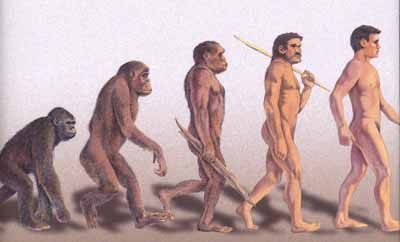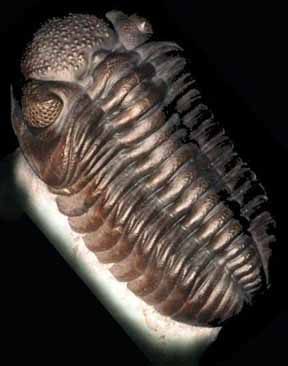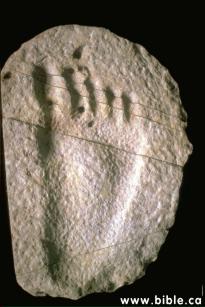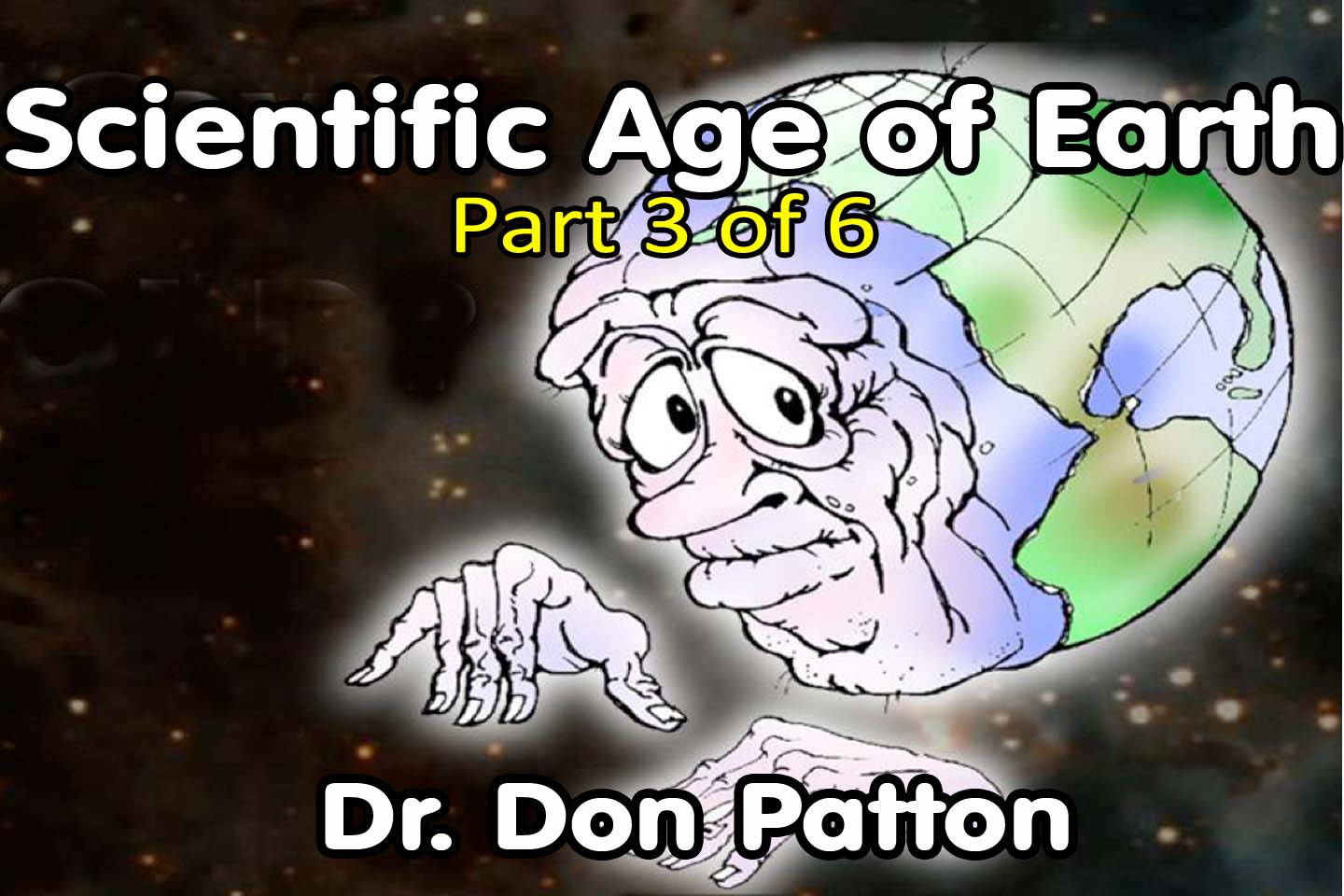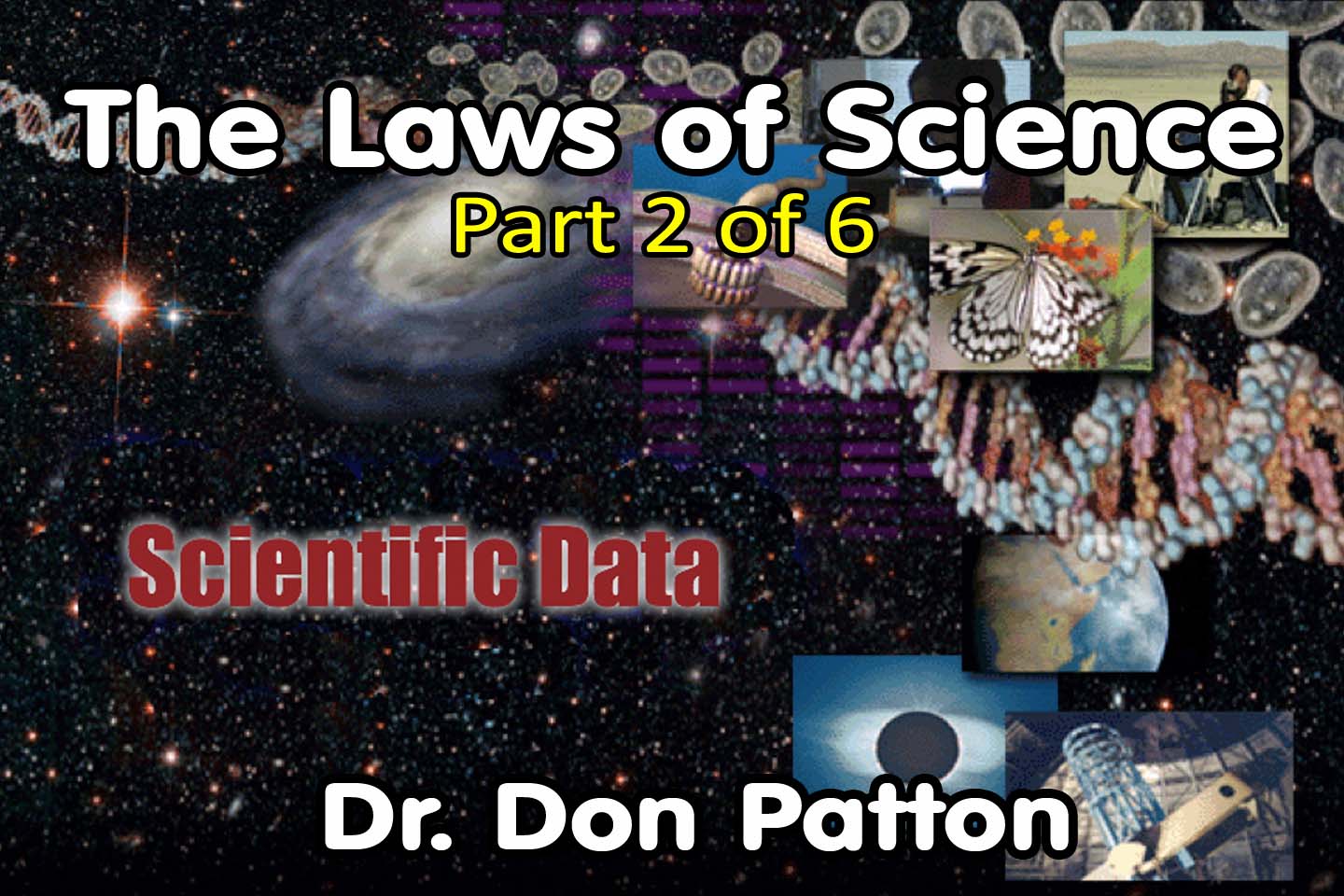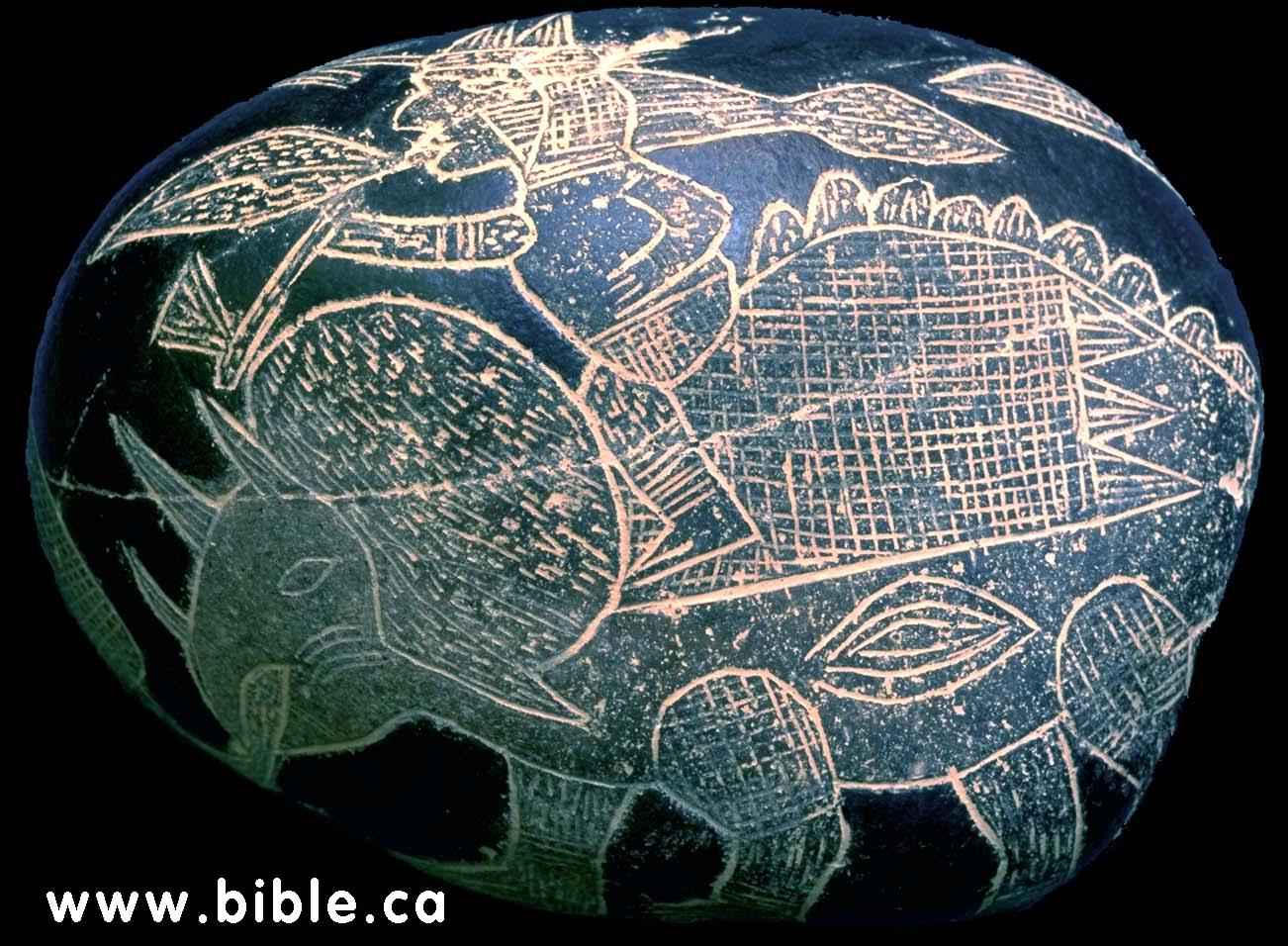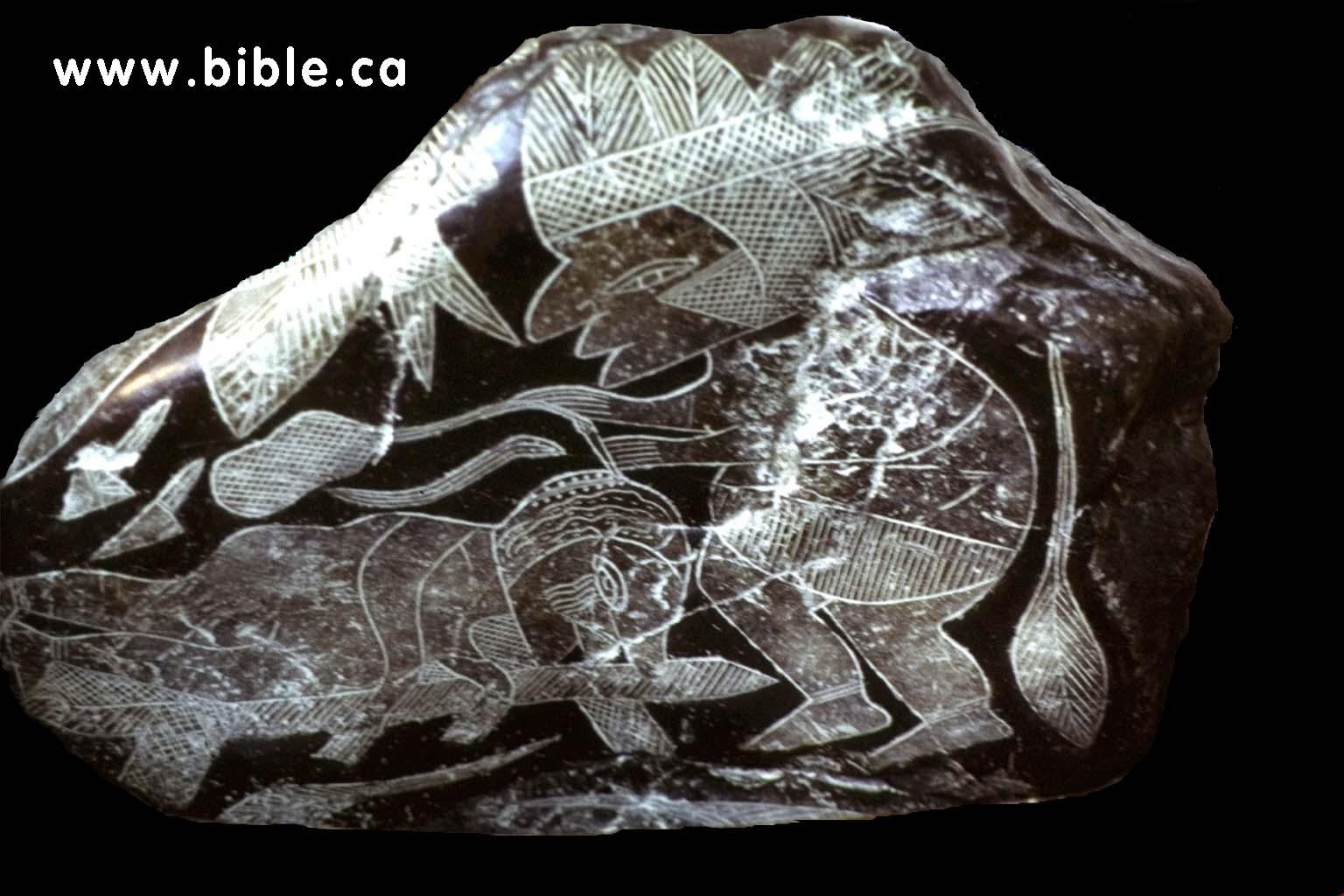|
LAWS OF SCIENCE
"LAWS" OF NATURE, James H. Shea, Editor, Journal of Geological Education, "The most serious problem with this concept grows out of the fact that it uses a metaphor, the Laws that govern or control nature.... We seem to believe that there literally are such laws. The concept is anachronistic in that it originated at a time when the Almighty was thought to have established the laws of nature and to have decreed that nature must obey them.... It is a great pity for the Philosophy of Science that the word 'law' was ever introduced.", Geology, v. 10, p. 458
1st Law of Thermodynamics
Albert Einstein, "Classical thermodynamics...only physical theory of universal content concerning which I am convinced that within the framework of applicability of its basic concepts, it will never be overthrown." Science, Vol. 157, p. 509
Isaac Asimov, "This law is considered the most powerful and most fundamental generalization about the universe that scientists have ever been able to make. No one knows why energy is conserved... All that anyone can say is that in over a century and a quarter of careful measurement scientists have never been able to point to a definite violation of energy conservation, either in the familiar everyday surroundings about us, or in the heavens above or in the atoms within." Smithsonian Institution Journal, 6/1970, p.6
ORIGIN OF MATTER, Isaac Asimov, "Perhaps in an infinite sea of nothingness, globs of positive and negative energy in equal-sized pairs are constantly forming, and after passing through evolutionary changes, combining once more and vanishing. We are in one of these blobs in the period of time between nothing and nothing, and wondering about it.", Science Digest, Vol.69, p.69
2nd Law of Thermodynamics
FAMILIAR TO EVERYONE, Isaac Asimov, "Another way of stating the second law then is 'The universe is constantly getting more disorderly!' Viewed that way we can see the second law all about us. We have to work hard to straighten a room, but left to itself it becomes a mess again very quickly and very easily. Even if we never enter it, it becomes dusty and musty. How difficult to maintain houses, and machinery, and our own bodies in perfect working order: how easy to let them deteriorate. In fact, all we have to do is nothing, and ev-erything deteriorates, collapses, breaks down, wears out, all by itself-and that is what the second law is all about.", Smithsonian Institution Journal, June, 1970, p. 6
HOPELESS EVASION, Sir Arthur Eddington, "...if your theory is found to be against the second law of thermodynamics, I can give you no hope; there is nothing for it but to collapse in deepest humiliation.", p.74 Nature of the Physical World.
JUST STATISTICAL? A.B. Pippard, Cambridge Univ., "There is thus no justification for the view, often glibly repeated, that the Second Law of Thermodynamics is only statistically true, in the sense that microscopic violations repeatedly occur, but never violations of any serious magnitude. On the contrary, no evidence has ever been presented that the Second Law breaks down under any circumstances.", Elements of Chemical Thermodynamics for Advanced Students of Physics, p.99-100
COMPREHENSIVE APPLICATION, Richard Morris, "The second law of thermodynamics has a chameleonlike character. It can be expressed in more different ways than any of the other laws of physics. The reason that it takes so many different forms is that it is the most general of all the laws that scientists have discovered. It applies to practically everything." Time's Arrows: Scientific Attitudes Toward Time, 1984, p.113
APPLIES TO INFORMATION, Tom Siegfried, Dallas Morning News, 5/14/90, "Is there a real connection between entropy in physics and the entropy of information? ....The equations of information theory and the second law are the same, suggesting that the idea of entropy is something fundamental..." [Quotes Robert W. Lucky, Ex. Director of Research, AT&T, Bell Laboratories & John A. Wheeler, of Princeton & Univ. of TX, Austin]
GREAT FAITH, Eric J, Chaisson, Harvard, "Along an arrow of time starting at the Big Bang, Chaisson depicts cosmic evolution in a wide range of systems: particulate, galactic, stellar, planetary, chemical, biological, and cultural. Over time, all these systems-be they manifested in worms, human brains, or microchips-become both more complex and more ordered..." Cosmic Evolution, Bookcover
Applies To Open System
OPEN?, John Ross, Harvard University, Chemical And Engineering News, p.40 July 7, 1980, "Ordinarily the second law is stated for isolated systems, but the second law applies equally well to open systems." Arnold Sommerfel, "...the quantity of entropy generated locally cannot be negative irrespective of whether the system is isolated or not." Thermodynamics And Statistical Mechanics, p.155
USEFUL ABSTRACTION, Richard Morris, "An isolated system is one that does not interact with its surroundings. Naturally there are no completely isolated systems in nature. Everything interacts with its environment to some extent. Nevertheless, the concept, like many other abstractions that are used in physics, is extremely useful. If we are able to understand the behavior in ideal cases, we can gain a great deal of understanding about processes that take place in the real world In fact treating a real system as an isolated one is often an excellent approximation.", Time's Arrows, p.113
UNSATISFACTORY "EXPLANATION" Charles J. Smith, "Biological systems are open and exchange both energy and matter. This explanation, however, is not completely satisfying, because it still leaves open the problem of how or why the ordering process has arisen (an apparent lowering of the entropy), and a number of scientists have wrestled with this issue. Bertalanffy (1968) called the relation between irreversible thermodynamics and information theory one of the most fundamental unsolved problems in biology." Biosystems, Vol.1, p259.
SURPLUS ENERGY: INSUFFICIENT! George Gaylord Simpson & W.S. Beck, "But the simple expenditure of energy is not sufficient to develop and maintain order. A bull in a china shop performs work, but he neither creates nor maintains organization. The work needed is particular work; it must follow specifications; it requires information on how to proceed.", An Introduction To Biology, p. 466
INFORMATION REQUIRED, Manfred Eigen (Nobel Laureate) "Here at the molecular level are the roots of the old puzzle about the chicken or the egg. Which came first, function or information? As we shall show, neither one could proceed the other; they had to evolve together." Evolution, p.13, 11/10/1982.
SOURCE OF INFORMATION??? Carl Sagan, Cornell, "The information content of a simple cell has been estimated as around 1012 bits, comparable to about a hundred million pages of the Encyclopaedia Britannica.", Life, Vol.10, p.894. Bill Gates, Chairman, Microsoft, Human DNA is like a computer program but far, far more advanced than any software we have ever created." The Road Ahead, p.228
MUTATIONS, Theodosius Dobzhansky, "....one can say that mutations are owing to incorrect copying, to occasional mistakes in the generally so remarkably accurate process of replication... You may, if you wish, compare mutations to accidental misspellings or misprints which even the most experienced copyist makes.... ...harmfulness of most mutants is just what could be reasonably expected. ....an accident, a random change, in any delicate mechanism can hardly be expected to improve it. Poking a stick into the machinery of one's watch or into one's radio set can hardly be expected to make it work better." Heredity And The Nature Of Man, p.126
MOST PROBABILE, Peter T. Mora, National Institute of Health, "Crystallization occurs because it leads to the lowest energy state, and to the most stable arrangement of atoms or molecules under the given conditions. Crystallization leads to simple, very uniform repeating structures, which are inert. These structures do not function, and are not designed by function." Nature, Vol. 199, 1963, p 216.
STRUCTURE CONFUSED WITH ORDER, Richard Morris, "For example, when a crystal grows in a liquid, structure appears that was not present before the process of crystallization began. As the crystal becomes larger, the entropy of the system does increase. ...The appearance of structure does not always imply an increase in order, even though "structure" and "order" are equated in our everyday speech." Time's Arrows, p.119.
EVOLUTION REQUIRES Energy & Information Increasing Energy & Information Require An "Open System" (Outside Source) Source For Energy is the Sun. Source For Information is ?????
Applies To Life
LIFE PROCESSES, Harold Blum, Prinston Univ., "No matter how carefully we examine the energetics of living systems we find no evidence of defeat of thermodynamic principles, but we do encounter a degree of complexity not witnessed in the non-living world." Time's Arrow and Evolution, p.14
LIFE WON'T "FORM" Ilya Prigogin (Nobel Laureate) "Unfortunately this principle cannot explain the formation of biological structures. The probability that at ordinary temperatures a macroscopic number of molecules is assembled to give rise to the highly ordered structures and to the coordinated functions characterizing living organisms is vanishingly small. The idea of spontaneous genesis of life in its present form is therefore highly improbable, even on the scale of billions of years during which prebiotic evolution occurred." Physics Today, Vol.25, p.28.
Observed In Life Of The Past
DOWNHILL, Stephen J. Gould, Harvard, "The sweep of anatomical diversity reached a maximum right after the initial diversification of multicellular animals. The later history of life proceeded by elimination not expansion." Wonderful Life, 1989, p.46
"LAW"? Stephen Gould, Harvard, "According to a 'law' formulated by E. D. Cope in 1871, the body size of organisms in a peculiar evolutionary lineage tends to increase. But Cope's rule has failed the most comprehensive test applied to it yet." Nature, V.385, 1/16/97
BIGGER & MORE DIVERSE, Von Engeln & Caster, "Also that mammalian life was richer in kinds, of larger sizes, and had a more abundant expression in the Pliocene than in later times.", Geology, p.19 "Giants Of The Past," "Leakey...had been scouring the gorge since 1931. Over the years he has unearthed the bones of an ancient pig as big as a rhino, a six-foot-tall sheep, a twelve-foot-tall bird and the flattopped skull of the erect 'Nutcracker man'.", Time Magazine, 3/10/1961 Larger Boy, Richard Leakey "...the boy from Turkana was surprisingly large compared with modern boys his age; ...he would probably go unnoticed in a crowd today. This find combines with previous discoveries of Homo erectus to contradict a long held idea that humans have grown larger over the millennia." National Geographic, 11/19/85 p.629 p.158 "...fossil bones from a 4 m tall, 500 kg [12', 1100 lb] bird that once roamed the Australian Outback (along with giant kangaroos and wombats the size of cars), were discovered near Central Australia's Alice Springs." Peter Murray, Mu. of Central Australia, Quoted in Daily Telegraph, 8/17/2002, p.7 "Stone Age Elepant" "...would have been twice the size of the largest modern African elephant. ...Bones from other large animals, including rhinoceros, buffalo and wild horses, have also been found nearby." BBC News, 6/19/04 "Ratzilla" Science News, 9/20/03 "Dig reveals real mighty mouse 8 million years ago, buffalo-size rodents roamed Venezuela" Science, 9/19, 2003 "Killer Kangaroos Once Roamed Australia" "University of New South Wales, Dr Sue Hand, told the Daily Mail had slicing crests on their teeth that, 'could have crunched through bone and sliced off flesh.'" Science News8/8,2006 Demon Duck of Doom, Bullockornis...stood approximately 2.5 metres (8 ft 2 in) tall. It may have weighed up to 250 kg (550 lb). ...a very large beak designed for shearing,...the bird may have been carnivorous." Wikipedia The Fossil Cycads, Robert Buckley, 1999"...the true cycads were apparently quite large. One fossil from Japan, a large stem over four feet in diameter...." p.13 A giant frog fossil from Madagascar dubbed Beelzebufo or 'the frog from Hell' has been identified by scientists from UCL (University College London) and Stony Brook University, New York. The discovery of the 70 million year-old fossil frog" 2/18/08, Physorg.com All Insects Larger, "In general all the Pennsylvanian insects were larger than the ones we know today." Trilobite, Dinosaur And Man, Clifford Simak, p.158 "Why Were Prehistoric Insects Huge?" "Alexander Kaiser, Ph.D., of Midwestern University's Department of Physiology, Division of Basic Sciences, was the lead author in a recent study to help determine why insects, once dramatically larger than they are today, have seen such a remarkable reduction in size over the course of history." Science Daily, 8/8/07
Observed Throughout Universe
DEGENERATING UNIVERSE, The Universe And Dr. Einstein, "The sun is slowly but surely burning out, the stars are dying embers, and everywhere in the cosmos heat is turning into cold, matter is dissolving into radiation, and energy is being dissipated into empty space. The universe is thus progressing to an ultimate 'heat death'....And there is no way of avoiding this destiny. For the fateful principle known as the second law of thermodynamics, which stands today as the principal pillar of classical physics left intact by the march of science, proclaims that the fundamental processes of nature are irreversible. Nature moves just one way." p.102
OBSERVED DETERIORATION, Fred L. Whipple, Dir., Smithsonian Astrophysical. Observatory, "Comets tend to split in pieces, particularly when they are near the Sun or Jupiter, but also when they are quite undisturbed in space. Some comets seem to tire out and die.", Mystery Of Comets, 1985, p.93
"A Comet Continues To Crumble" "A Comet discovered last January just can't keep itself together. Ever since astronomers first spied the object dubbed C/2001 A2, it's been breaking up. ...another comet shattered into more than 10 pieces as it neared the sun last summer..." Science News, V.160, p.41, 7/21/2001
STARS "THEORETICALLY" IMPOSSIBLE, J. C. Brandt, "Contemporary opinion on star formation holds that the objects called protostars are formed as condensations from interstellar gas. This condensation process is very difficult theoretically and no essential theoretical understanding can be claimed; in fact, some theoretical evidence argues strongly against the possibility of star formation. However, we know that the stars exist, and we must do our best to account for them.", Sun And Stars, p.111 Abraham Loeb, Harvard Center for Astrophysics, "The truth is that we don't understand star formation at a fundamental level." New Scientist, V.157, 2/7/1998, p.30 Derek Ward-Thompsom, Cardiff Univ. "Stars are among the most fundamental building blocks of the universe, yet the processes by which they are formed are not understood." Science, V.295, p.76, 1/4/2002 Geoffrey Burbidge, Director, Kitt Peak National Observatory, "If stars did not exist, it would be easy to prove that this is what we expect.", Stellar Structure, p.577 Genesis 2:1 "Thus the heavens and the earth, and all the host of them, were finished."
GALAXIES "THEORETICALLY" IMPOSSIBLE, James Trefil, Physics, George Mason U., "It seems that the more we learn about the basic laws of nature, the more those laws seem to tell us that the visible matter-the stuff we can see-shouldn't be arranged the way it is. There shouldn't be galaxies out there at all, and even if there are galaxies, they shouldn't be grouped together the way they are. ...The problem of explaining the existence of galaxies has proved to be one of the thorniest in cosmology. By all rights, they just shouldn't be there, yet there they sit. It's hard to convey the frustration that this simple fact induces among scientist...Despite what you may read in the press, we still have no answer to the question of why the sky is full of galaxies..." Dark Side Of The Universe, 1988, pp.2, 55 Martin Rees, "The most basic questions about galaxies are still not understood. If galaxies didn't exist, we would have no problem explaining that fact.", Dallas Morning News, 8/15/1988
ORIGIN OF SOLAR SYSTEM, Sir H. Jeffries, Cambridge, "I think all suggested accounts of the origin of the Solar System are subject to serious objections. The conclusion in the present state of the subject would be that the system cannot exist.", The Earth, 1970, p.359. Fred Whipple, Harvard "All of the hypotheses so far presented have failed, or remain unproved, when physical theory is properly applied." Orbiting The Sun, 1981, p.284. Ida, Canup, & Stewart, "Many models have been proposed for the formation of the Moon, but no one has succeeded in showing the formation satisfactorily." Nature, V.389, 9/25/1997, p. 353 Nafi Toksoz, M.I.T., "It's far easier to explain why the moon shouldn't be there than to explain its existence.", Science 81, 3/81, p.120. Stuart Ross Taylor, Lunar and Planetary Institute, "The ultimate origin of the solar system's angular momentum remains obscure." Solar System Evolution: A New Perspective Cambridge University Press, p.53 "All in all, developing a theory of lunar origins that could make sense of data obtained from the Apollo lunar landing programme proved very difficult. So much so, in fact, that when I took a class on our planetary system from Irvin Shapiro two decades ago, he joked that the best explanation was observational error — the moon did not exist." Nature, V.389, 9/25/1997, p.327
Demands Beginning, A Creator
DEMANDS BEGINNING, Isaac Asimov, "As far as we know, all changes are in the direction of increasing entropy, of increasing disorder, of increasing randomness, of running down. Yet the universe was once in a position from which it could run down for trillions of years. How did it get into that position?" Science Digest, May 1973, pp.76-77 Paul C.W.Davies, Kings College, London, "The greatest puzzle is where all the order in the universe came from originally. How did the cosmos get wound up, if the Second Law of Thermodynamics predicts asymmetric unwinding toward disorder?" Universe In Reverse," Second Look, 1, 1979, p.27
ONE ADEQUATE CAUSE, H.J. Lipson, Physics, U. of Manchester, "I think however that we should go further than this and admit that the only accepted explanation is creation. I know that is anathema to physicists, as it is to me, but we must not reject a theory that we do not like if the experimental evidence supports it.", Physics Bulletin, Vol.31, 1980, p.138
POINTS TO CREATOR, G.J. Van Wylen, Richard Sonntag, "...we see the second law of thermodynamics as a description of the prior and continuing work of a creator, who also holds the answer to our future destiny and that of the universe." Fundamentals Of Classical Thermodynamics, 1985, p.232.
|
|







